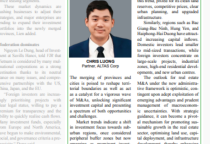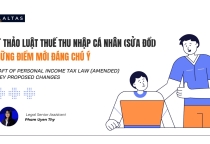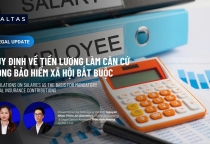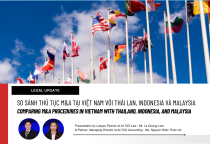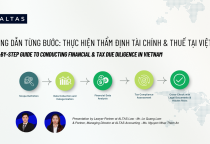I - SUPPLEMENTED MANDATORY SOCIAL INSURANCE PARTICIPANTS
-
With respect to Vietnamese citizens subject to mandatory social insurance (“SI”), the following groups are newly added:
-
Business household owners (with business registration);
-
Non-specialized personnel at hamlet and residential group levels, similar to those at commune level;
-
Enterprise managers, controllers, representatives of state-owned capital, representatives of enterprise-held capital in accordance with the law; and members of the Board of Directors, General Directors, Directors, members of the Supervisory Board or controllers, and other elected management titles of cooperatives and cooperative unions as prescribed by the Law on Cooperatives who do not receive salaries (hereinafter collectively referred to as “Management Position Holders”).
-
Priority mechanism in cases of simultaneous eligibility under multiple mandatory SI categories:
No. |
Case |
Priority for SI contribution |
1 |
Multiple labor contracts |
First effective labor contract |
2 |
Civil servants/public employees or salaried Management Position Holders + labor contract |
Civil servant/public employee role or salaried management role |
3 |
Management Position Holders (with or without salary) holding positions in multiple entities |
First appointed entity |
4 |
Working abroad or non-specialized commune-level + labor contract or salaried management or part-time labor contract |
Labor contract/salaried management role |
5 |
Non-specialized commune-level + business household owner or non-salaried Management Position Holder |
Non-specialized commune-level role |
6 |
Business household owner or non-salaried Management Position Holder simultaneously falling under other groups |
As regulated by the Government |
7 |
Standing militia members + non-specialized commune-level or business household owner |
Standing militia member role |
Detailed Analysis:
(1) Employees with multiple labor contracts shall pay SI under the first effective labor contract. If such contract is suspended and continuation of contribution is not agreed upon, priority shifts to the next signed contract;
(2) Civil servants/public employees or salaried Management Position Holders who simultaneously enter into a labor contract (including part-time) shall prioritize SI contribution under their public role or salaried management position;
(3) Management Position Holders (with or without salary) who concurrently hold positions at multiple entities shall only contribute SI at the first appointed entity;
(4) Employees working abroad or non-specialized commune-level officials who concurrently fall under (i) labor contract, (ii) salaried Management Position Holder, or (iii) part-time labor contract shall prioritize SI contribution based on the role appointed or signed earliest;
(5) Commune-level non-specialized officials who are also business household owners or non-salaried Management Position Holders shall contribute based on the non-specialized role;
(6) Business household owners and non-salaried Management Position Holders falling under multiple categories shall comply with guidance issued by the Government.
Detailed regulations have not yet been issued
(7) Standing militia members concurrently serving as non-specialized commune officials or business household owners shall contribute SI under the standing militia role.
-
For foreign nationals subject to mandatory SI
According to the 2024 SI Law, the framework set out under the 2014 SI Law and Decree 143/2018/ND-CP (“Decree 143”) remains applicable. Specifically:
Foreign employees working in Vietnam are subject to mandatory SI if they enter into a definite-term labor contract of at least 12 months with a Vietnamese employer, unless falling under the following exceptions:
(i) Intra-corporate transferees under Vietnamese laws on foreign workers in Vietnam;
(ii) At the time of signing the labor contract, the employee has reached the retirement age specified under Clause 2, Article 169 of the Labor Code;
(iii) International treaties to which the Socialist Republic of Vietnam is a party provide otherwise.
Under Decree 152/2020, “intra-corporate transferee” is defined as a foreign national who is:
(1) A manager;
(2) An executive director;
(3) A specialist or technical worker of a foreign enterprise having a commercial presence in Vietnam; and
(4) Temporarily assigned to a commercial presence in Vietnam and has been employed by the foreign enterprise for at least 12 months prior to the transfer.
To avoid confusion, application of SI regulations should be interpreted such that: if a Management Position Holder is a foreign national and qualifies as an intra-corporate transferee, they are not subject to mandatory SI in Vietnam.
II - REPLACEMENT OF “BASIC SALARY” WITH “REFERENCE LEVEL” FOR SI CONTRIBUTION AND BENEFIT CALCULATION
Under the 2024 SI Law, the basic salary — previously used to calculate wages for civil servants/public employees and SI contributions/benefits — will be replaced in phases. As of 1 July 2025, the concept of “Reference Level” officially supersedes the basic salary. This transition is implemented in two directions:
-
For SI-related regimes, the “Reference Level” will be used instead. This amount is determined and periodically adjusted by the Government, based on consumer price index (CPI), economic growth, and the balance capability of the State budget and SI fund. The initial Reference Level will equal the then-current basic salary and may not be lower than the final basic salary at the time of abolition.
-
For determining wages, wage tables, and salary policies for public officials and civil servants, a new wage system is being developed per Resolution 27-NQ/TW on salary reform. As of now, detailed regulations for the new wage system have not been issued, and current regulations remain in effect.
-
Determining the Reference Level
The Reference Level is an amount determined by the Government and used as the basis to calculate SI contribution and benefit levels. Adjustments will be made periodically based on indicators such as CPI, economic growth, and financial sustainability of the State budget and SI fund. The Government shall issue detailed regulations on the value, adjustment cycles, and methods of application.
During the transition period before the official abolition of the basic salary, the Reference Level shall be deemed equal to the current basic salary. After abolition, the Reference Level may not fall below the last effective basic salary.
-
Application of the Reference Level in cases without salary as contribution basis
Certain participants may elect a salary as the basis for mandatory SI contribution, including:
:
(1) Workers sent abroad under contract;
(2) Spouses of government officials on term assignments abroad, receiving subsistence allowances and not paid from the State budget;
(3) Business household owners;
(4) Non-salaried Management Position Holders.
These individuals may choose a salary for SI contribution purposes, which must be at least equal to the Reference Level and not exceed 20 times the Reference Level at the time of contribution. After at least 12 months of contribution based on the selected level, the participant may adjust their contribution salary.
III - INTRODUCTION OF ELECTRONIC TRANSACTIONS IN THE SOCIAL INSURANCE SECTOR
The 2024 SI Law introduces new provisions to promote and standardize electronic transactions between participants, employers, and SI authorities. Key highlights include:
-
All administrative procedures in the SI field — such as registration, information updates, contribution and benefit claims — may be performed electronically, with legal validity equivalent to paper documents.
-
Electronic portals, digital SI platforms, the VssID application, and other digital infrastructure shall be uniformly used for transactions, with connection and security standards issued by the Vietnam Social Security authority.
-
Participants may use electronic identification accounts, personal digital signatures, or other lawful authentication methods to sign and submit declarations or adjustments related to SI.
IV - PENALTIES FOR SOCIAL INSURANCE VIOLATIONS
A significant change introduced by the 2024 SI Law is the revision of the penalty mechanism for delayed or evaded SI contributions by employers. Specifically:
Instead of the prior penalty calculated at over twice the investment interest rate of the SI Fund, the 2024 SI Law sets a fixed daily penalty rate of 0.03% on the amount of delayed or evaded SI contributions.
In addition to paying the outstanding SI amount, employers must also pay the penalty calculated based on the total number of days the violation remains unrectified.
---
Written by: Management of ALTAS Corp & Legal Senior Assistant Tran Anh Hoang - ALTAS Law











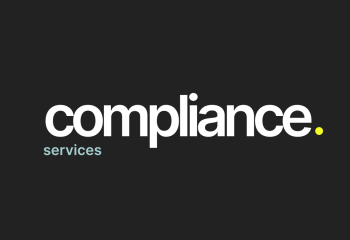


(1).png)
